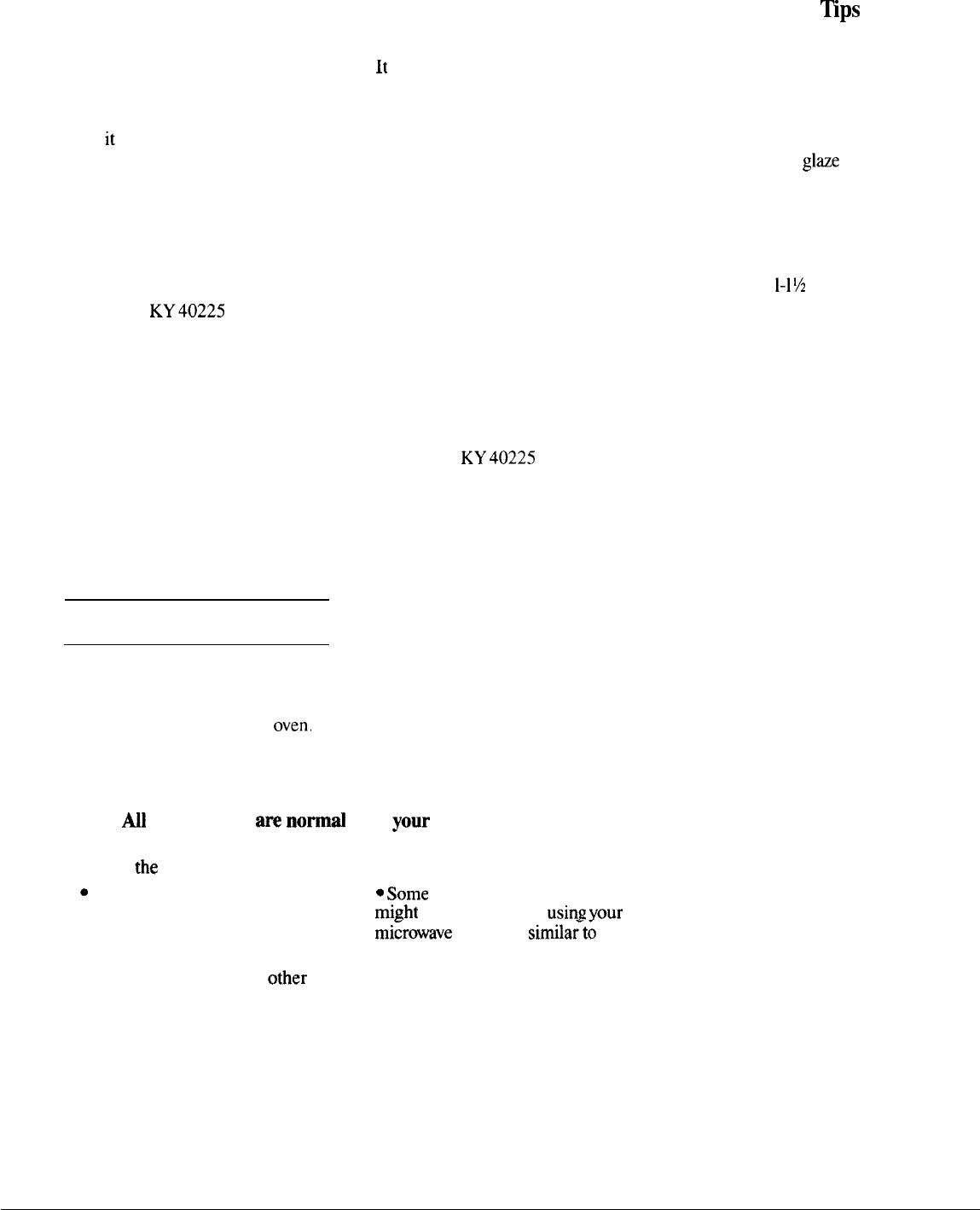
Help us help you...
Before using your oven,
read this book carefully.
It is intended to help you operate
and maintain
your new microwave
oven properly.
Keep
it
handy for answers to your
questions.
If you don’t understand something
or
need more help, write (include
your phone number):
Consumer Affairs
GE Appliances
Appliance Park
Louisville, KY40225
Write down the model
and serial numbers.
You’ll find them on a label inside
the oven on the upper left side.
These numbers are also on the
Consumer Product Ownership
Registration Card that came with
your microwave oven. Before
sending in this card, please write
these numbers here:
Model Number
Serial Number
Use these numbers in any
correspondence or service calls
concerning your microwave
oven.
Be sure your microwave
oven is registered.
It
is important that we know the
location of your oven should a need
occur for adjustments.
Your supplier is responsible for
registering you as the owner.
Please check with your supplier
to be sure he has done so; also send
in your Consumer Product Ownership
Registration Card. If you move, or
if you are not the original purchaser
please write to us, stating model
and serial numbers.
This appliance
must be registered. Please be
certain that it is.
Write to:
GE Appliances
Range Product Service
Appliance Park
Louisville, KY40225
If you received a
damaged oven . . .
Immediately contact the dealer
(or builder) that sold you the
microwave oven.
Save time and money.
Before you request service . . .
check the Problem Solver on
pages 20 and 21. It lists causes of
minor operating problems that you
can correct yourself.
Ml
these things are
nomd
with
your
microwave oven:
● Steam or vapor escaping from
●
Dull thumping sound while
around
the door.
oven is operating.
o
Light reflection around door or
*
Some TV-Radio interference
outer case.
might
be noticed while
using
your
Microwaving
~ps
●
Make sure all cookware used in
your microwave oven is suitable for
microwaving. Most glass casseroles,
cooking dishes, measuring cups,
custard cups, pottery or china
dinnerware which does not have
metallic trim or
glme
with a metallic
sheen can be used. Some cookware
is labeled “suitable for microwaving?’
If you are unsure, use this dish test:
Measure 1 cup water in a glass cup.
Place in oven on or beside dish.
Microwave
1-1Y2
minutes at High. If
water becomes hot, dish is microwave
safe. If dish heats, it should not be
used for microwaving.
●
Paper towels, wax paper and
plastic wrap can be used to cover
dishes in order to retain moisture
and prevent spattering.
●
Some microwaved foods require
stirring, rotating or rearranging.
Check your cookbook.
●
Steam builds up pressure in foods
which are tightly covered by a skin
or membrane. Pierce potatoes, egg
yolks and chicken livers to prevent
bursting.
* Dimming oven light and change
mi;rowave
oven. It’s
similar-t~
the
in blower sound may occur while
interference caused by other small
operating at power levels
other
appliances and does not indicate a
than high.
problem with your oven.
2


















